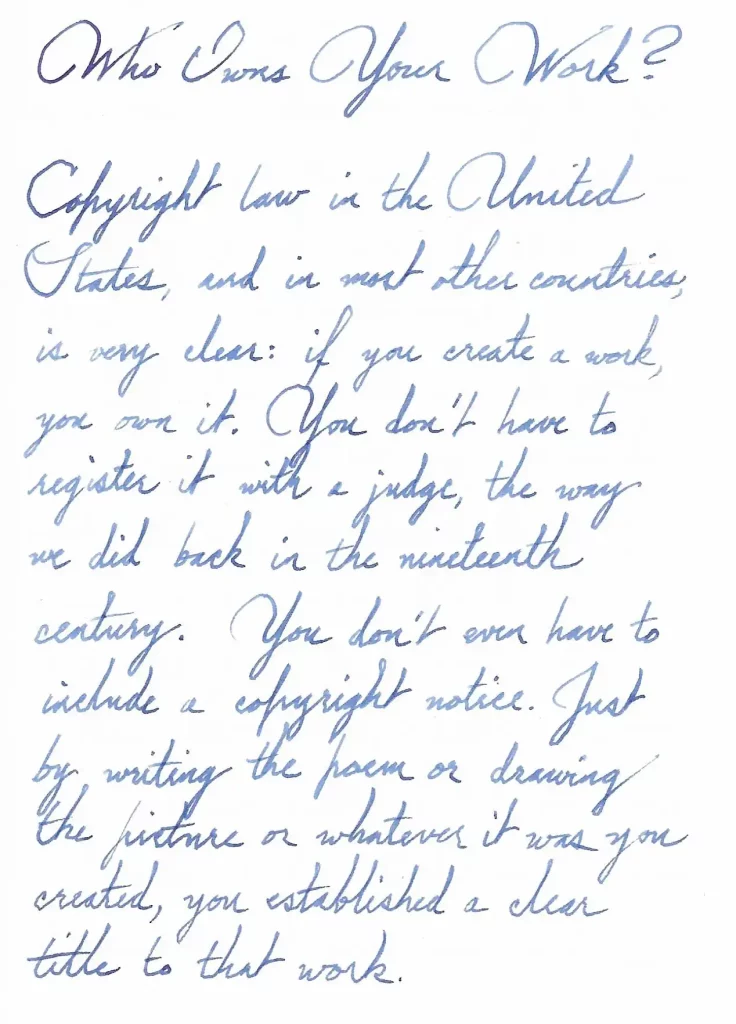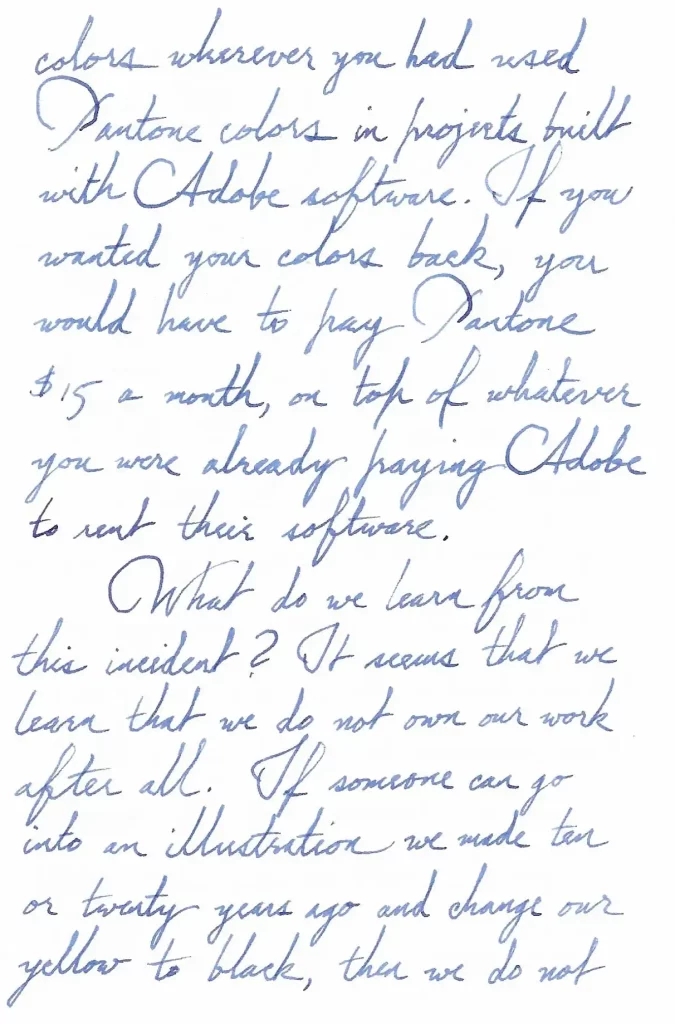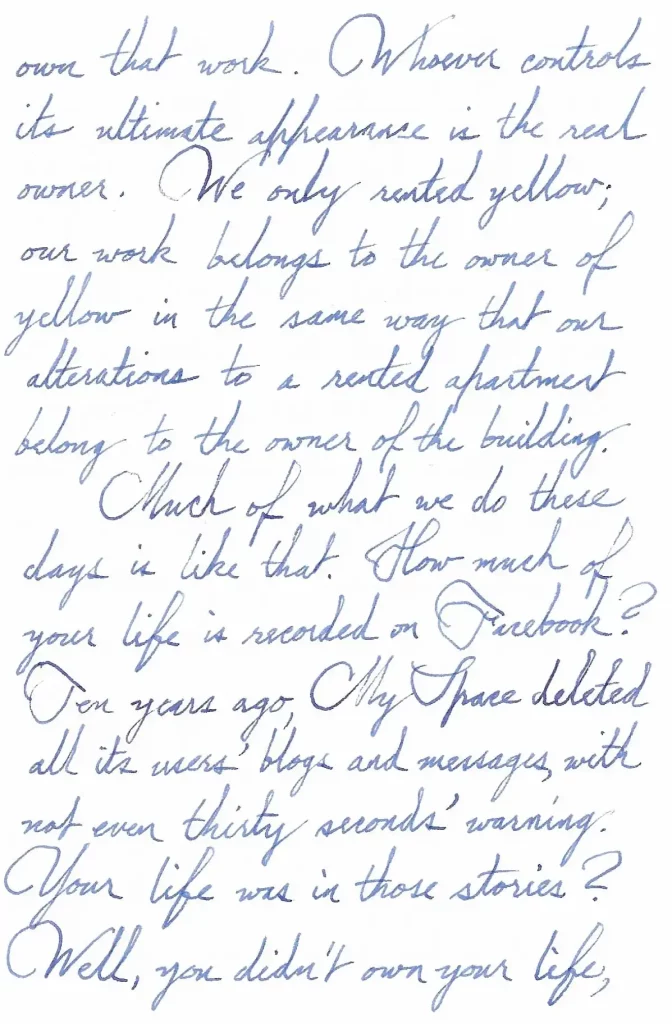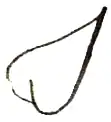





Transcribed below.
Who Owns Your Work?
Copyright law in the United States, and in most other countries, is very clear: if you create a work, you own it. You don’t have to register it with a judge, the way we did back in the nineteenth century. You don’t even have to include a copyright notice. Just by writing the poem or drawing the picture or whatever it was you created, you established a clear title to that work.
That is the legal theory, at any rate. But in our digital age, it is complicated in practice by the question of who owns the tools you used to create the work.
A few months ago, designers and illustrators all over the world woke up and discovered that their colors had turned black. Some reported that they had lost colors from twenty-year-old files.
What happened? Adobe and Pantone had a fight, and because they couldn’t agree, you lost your colors wherever you had used Pantone colors in projects built with Adobe software. If you wanted your colors back, you would have to pay Pantone $15 a month, on top of whatever you were already paying Adobe to rent their software.
What do we learn from this incident? It seems that we learn that we do not own our work after all. If someone can go into an illustration we made ten or twenty years ago and change our yellow to black, then we do not own that work. Whoever controls its ultimate appearance is the real owner. We only rented yellow; our work belongs to the owner of yellow in the same way that our alterations to a rented apartment belong to the owner of the building.
Much of what we do these days is like that. How much of your life is recorded on Facebook? Ten years ago, MySpace deleted all its users’ blogs and messages, with not even thirty seconds’ warning. Your life was in those stories? Well, you didn’t own your life, says the landlord when you complain. Check our terms of service: we can do what we like with your data.
There is no perfect answer to the question of how to own your own work in a digital world. Use open file formats, you might say, and that will help. If you have something very important, keep it in more than one place in more than one format.
But of course we can hardly be blamed for pointing out that you really do own whatever you have written or drawn with ink on paper. The same is true for printed reproductions of your work. Your publisher may remove all offensive subtlety from future printings, but the copies already printed do not suddenly become different.
Ink and paper have their own inconveniences. But when you make marks on paper, you do own your work, and no one can charge you rent on it.

Leave a Reply